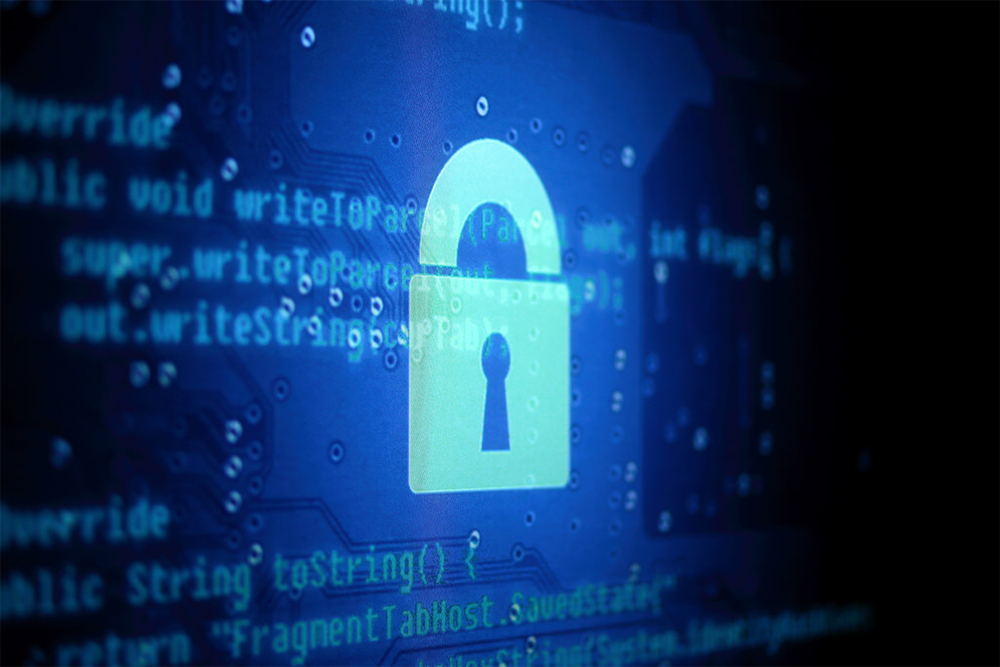Encryption might be something the Germans are big fans of, but the British government and its intelligence agencies continue to paint it as a tool of evil, used to hide criminal activity from the authorities. However as opposition to this view point grows, it's attempted to mollify concerns that it hates privacy as a whole and has suggested it doesn't want backdoors into communications, it just wants to be able to read them whenever it has a warrant. Which is one and the same thing.

Source: Yuri Samollov
As you might expect, many people have highlighted this hypocrisy and the lack of understanding many politicians seem to have over it, including in-exile whistleblower Edward Snowden. He pointed out that Joanna Shield, current UK Minister for Internet Safety and Security said to the collected House of Lords: “This is not about creating back doors; this is about companies being able to access communications on their network when presented with a warrant.”
Translation for UK journalists: "Of course we want backdoors, but only for everything people actually use." ht @RidT pic.twitter.com/GsKJQZMPWq
— Edward Snowden (@Snowden) October 28, 2015
He then explained to individuals like Shields what exactly a backdoor was, stating: “a backdoor is a mechanism to provide secret access to otherwise confidential communications. It has nothing to do with warrants.”
Indeed although encouraging that Shields is keen to see data standards only broken when a warrant is signed, rather than whenever the intelligence agencies see fit – as is happening currently with blanket surveillance of the population – her lack of understanding of what it takes to break encryption is worrying for someone in her position in government; especially considering her specific role.
Snowden went on to point out however, that warrants are only designed to provide access to information already accessible to a company or individual, not to deputise them into policing their own customers.
Traditional, effective surveillance means targeting suspects.
Not a population.
Not a technology.
Not a service.The suspect.
— Edward Snowden (@Snowden) October 28, 2015
As much as Snowden's commentary and criticism are warranted, it seems unlikely to sway a government headed by David Cameron, a person who has been hard on encryption, privacy and web standards for some time now. His recent push for pornography filtering is similar to his attack on encryption, wanting to protect children whilst allowing the government to view as much of what we're doing online as possible, to help do that.
A new draft of the repeatedly shot-down Snooper's Charter, pushed by Theresa May, is set to be unveiled next week and it is thought likely to champion the idea of breaking encryption and making ISPs responsible for tracking what their customers do online, storing that information for up to a year and providing it when requested.
This is why, as the Guardian points out, PR efforts by intelligence agencies have expanded heavily in recent months, as they attempt to justify their mass collection of British and international data.
Fortunately there are some politicians that do seem to understand what's going on. Before Shields launched into her rhetoric, Liberal MP Paul Strasburger pointed out that David Cameron “does not seem to get it yet,” that strong encryption is vitally important for banking and retail, among other uses.
Discuss on our Facebook page, HERE.
KitGuru Says: The naiveté in parliament over encryption, internet standards and digital communication is staggering. It's amazing how little they listen to the advice of people that know what they're talking about and are more than happy to pander to right-wing scare-mongering.
 KitGuru KitGuru.net – Tech News | Hardware News | Hardware Reviews | IOS | Mobile | Gaming | Graphics Cards
KitGuru KitGuru.net – Tech News | Hardware News | Hardware Reviews | IOS | Mobile | Gaming | Graphics Cards



Huge Respect to KitGuru for reporting these Political Issues. Remember the NSA & 5 Eyes Partner? They all seems to share a similar agenda, 24/7 Orwellian Style Surveillance on the Public. This year technology at CES 2015 was mostly about Tracking & Monitoring devices.
My God, could you hold a more overt bias against the Conservative government?
I’m not sure I understand what Snowden is getting at here.
Typically, companies will have a master key for encryption. What I believe the government is asking for, is the ability to request information from a given company, through a warrant, who will then be required, by law, to use their master key to decrypt a given piece of information, and hand it over to the authorities. That does not constitute a “back door”, any more than an administrator’s privilege is a backdoor into a user’s files. I believe the objection is to situations where companies do not keep a “master key”, and so are actually incapable of decrypting any information on their networks, which strikes me as rather irresponsible, especially if a high court judge rules that the government should have access to that information, for security purposes.
Of course the same bs answer. “Do it for the children.” No, you’re doing it for yourself because you don’t like it.